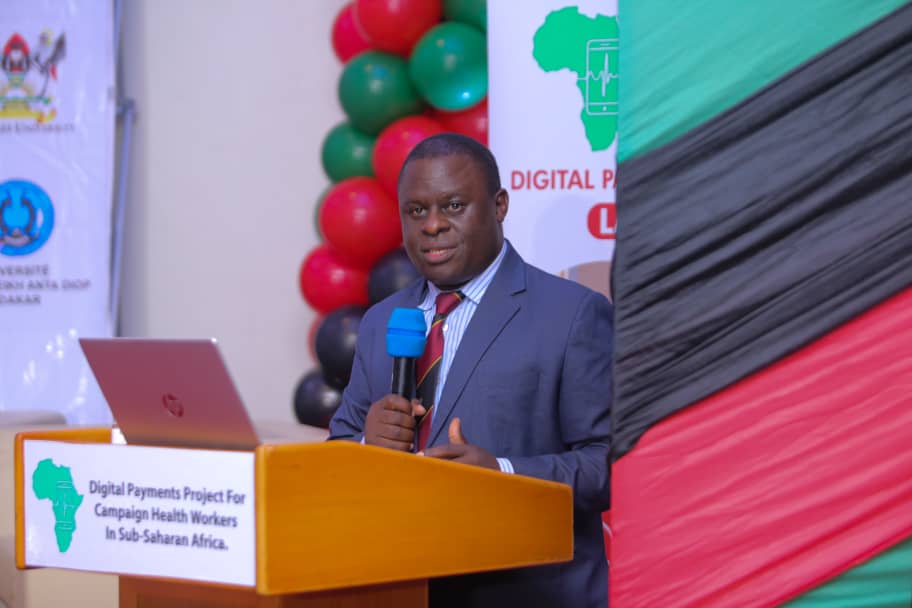Makerere University School of Public Health (MakSPH) in collaboration with the University of Dakar in Senegal with support from Bill and Melinda Gates Foundation (BMGF) has officially launched the digital payments project for health workers to boost the health system in sub-Saharan Africa.
The project is launched under the theme Digital Health Innovations, the pathway to a resilient, efficient, interactive, and interconnected Health system in Sub Saharan Africa, and the project activities will focus on steering digital payments around the health workforce in a bid to improve work performance.
According to Prof Peter Waiswa, the center director of the project, this project is intended to provide strategic funding for research, which will be generated to meet the evidence demands of health partners who are already looking for digital payment solutions, and Encourage greater attention to their value as a critical strategy for health system strengthening because of its ability to improve the timeliness of efficiency of health workforce payments.
He noted that the initial project seeks to identify how, and under what circumstances digital payments of health workers can support effective campaign delivery and enhance efforts to digitize payments for health workers by fostering and supporting evidence-based and evidence-driven decision making in Africa.
Professor Waiswa also revealed that the Digital Health and Innovations project launched will be implemented in Anglophone countries by Makerere University in Uganda and Francophone countries by Dakar University in Senegal.
Associate Prof Elizeus Rutebemberwa, who represented Prof Rhoda Wanyenze, the Dean of Makerere University School of Public Health, explained that harnessing digital solutions for health workers will strengthen the response to emergencies in the continent through ensuring rapid reliable, and efficient payment of frontline workers involved in specifically immunization campaigns at the start before the payment system is widely rolled out.
On the behalf of Prof Barnabas Nawangwe, the Vice-Chancellor of Makerere University, Professor Umar Kakumba, Deputy Vice-Chancellor, commended the project team and appreciated the School of Public Health for the great steps towards making research and innovations more visible Foundation at Makerere University, adding that research in areas around digital innovations is timely and that the project will be paramount in addressing challenges affecting the health sector.
While officiating, the project, Prof Kakumba further said that greater adoption of mobile payment innovations should be at the heart of preventive and curative interventions aimed at reducing Africa’s burden of infectious diseases and related deaths.
“As a University, we must continue to demonstrate why the Government and development partners must continue funding research and innovations. We should therefore carry out and support research projects in a way that will yield positive impacts on the people we serve and live within our communities. Prof Kakumba pledges.
He said African countries that prioritize the adoption of mobile payment innovations will be able to attract and retain highly qualified health workers to boost action on communicable diseases.
The Digital Payments project is a Bill and Melinda Gates Funded investment that established a new research initiative anchored at two existing prominent African institutions, are Makerere University in Uganda and the University of Dakar, Senegal to catalyze the creation of evidence on the value add of digitalized payments of health workers on the quality of immunization and other health campaigns.
Digital Payments Research project envisions integrating best practices in qualitative and quantitative research, including demand-side mobile and field surveys, supply-side data analysis, and targeted experiments in close collaboration with key global health and vaccine campaign partners.
The project will harness the value of working in regions with developed financial infrastructure and the opportunity to work in regions likely to host vaccine campaigns. It is believed that this will transform Africa’s health system into adopting mobile payment innovations.
Furthermore, this will bridge the evidence gaps, share learning and build a community of practice around digital payments in health in sub-Saharan Africa, and harness digital payments solutions into the health system across the African continent and beyond.








